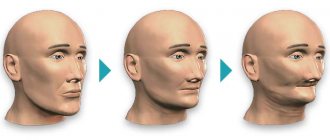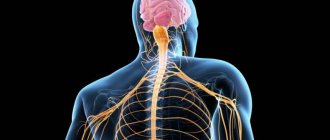People often wonder what human intelligence is and how it relates to psychology. Therefore, in this article I will explain in detail what is meant by this term.
This is a complex of abilities to learn, understand, solve complex issues and find a way out of difficult situations, as well as the ability to think. Society greatly respects this quality and recognizes its value, but does not always characterize it correctly. For many, the traits of an intellectual are encyclopedic knowledge and excellent memory. In fact, they are associated with erudition.
Definition of Intelligence
It represents something of a taste for ideas. The chain is as follows: thinking processes the life experience we acquire and accumulates knowledge, with their help new ideas, discoveries, inventions, and innovations are born. This is a thought process that is impossible without abilities. Some are given more of them, some have less. This is human intelligence. If its level is low, there will be little benefit from knowledge. Readiness and awareness are just tools that help it manifest itself. Having a lot of knowledge without the ability to use it is the same as playing the violin without talent.
What characterize intellectual skills:
- Memory;
- skills of analysis, structuring information and forecasting;
- logic;
- attentiveness;
- zeal;
- reproduction;
- flexibility, depth, inquisitiveness of mind;
- curiosity.
What is IQ?
IQ or intelligence quotient is a number that expresses human intelligence. The main definition of IQ for testing children and adolescents dates back to the beginning of the last century. It was created by psychologist William Stern and reads: “IQ is equal to the ratio of a person’s mental age to his chronological age, multiplied by 100, i.e. If a child's mental age matches his actual age, then his IQ level is 100."
For testing adults, the so-called deviant IQ, which compares a person's intellectual ability to the average IQ in the population.
Types
Until now, there is no unified classification of intelligence. Only one scientist, Howard Gardner, put forward the theory of 8 varieties:
- Spatial, most developed among drivers and designers. Characterizes the ability to navigate the terrain. If you are having difficulty building a route, this is what you need to develop. This can be done by solving problems with finding a way out, painting and sculpting, and tracking the movement of objects.
- Kinesthetic, responsible for the ability to use one’s own body, dexterity, and coordination. Those who have it developed dance and work well. Sports, yoga, and physical activity will help in its development.
- Musical, gives its owners a sense of rhythm, hearing and understanding. The more a person immerses himself in music, dancing, listening, singing, the more he will improve this type of intelligence.
- Linguistic, responsible for written and oral speech, develops when studying foreign languages, reading, communicating with people.
- Logical, allows you to feel like a fish in water among symbols, signs and diagrams. Will be an excellent companion for a scientist and inventor. To improve logic, you need to solve problems, puzzles and puzzles, and build chains.
- Interpersonal, also known as social, is close to empathy. This is the ability to feel and understand people, ease in building relationships, sociability and communication. It is important for creating a family and forming friendships. He is trained at seminars, trainings, and group games.
- Emotional is needed to understand yourself, to live in harmony with your inner world. It is especially difficult to develop, therefore it requires the use of spiritual practices: meditation, purification, reflection.
- Naturalistic is associated with worldview, natural phenomena, and physical laws.
Any type of intelligence in psychology is based on the development of personality traits and determines its individuality.
Structure
The processes in our head are so complex and diverse that they are not subject to structuring according to several criteria. Comparing a talented mathematician with a brilliant composer is difficult and unproductive.
Psychologist Daria Milai
Make an appointment
J.P. Guilford presented a three-dimensional cubic model in which he identified 120 mental abilities (memory, analysis, assessment, expression of thoughts, etc.) and structured them into three components:
- Content (what we think about).
- Operation (as we think).
- Result (what the process leads to).
Some people are able to quickly draw conclusions and make decisions, others are close to flashes of insight with an instant understanding of the essence (remember Archimedes with his “eureka”), others are fixated on the assumption that came first. An intellectually developed person can live happily all his life, while thinking haphazardly and impulsively, without going beyond standards and stereotypes.
What factors influence a person's mental abilities?
The level of intelligence can vary significantly among different people. Among us there are intellectuals, slow-witted people, people with average abilities and those who are commonly called mentally retarded. But why are people so different mentally?
Various studies have shown that the formation of human mental abilities is influenced primarily by genetic factors. Upbringing, environmental influences and random external influences play a much smaller role.
However, the external environment also has a certain significance for the formation of intelligence. These are factors such as the standard of living of the family, the level of education of parents, the nature of upbringing, the availability of school education for children (in American studies, students from good urban schools turned out to be more intellectual than students from modest rural schools). Research has even established the influence of such individual factors as annual family income, the size of the house and its cost, the relationship between parents, etc.
The role of nutrition cannot be ruled out. The brain is a rather voracious structure, and a lack of nutrients can lead to a decrease in its ability to process information.
Main function
The value of mental abilities is that they help you think productively. Thanks to them people:
- self-realization and self-affirmation;
- achieve success and demonstrate talent;
- master new skills and gain knowledge;
- occupy a position in society.
The list can be continued by the fact that intelligence and insight from ancient times to the present day help to survive, get settled, start a family and raise children. Therefore, the main thing for which they are responsible is the ability to integrate into society, adapt and find their place, and to do this profitably and quickly. The mind protects us from dangers. Levels of intelligence in psychology are divided into:
- Short. People in this category are weak and dependent, passive and submissive. They definitely need care and support, the world around them seems complex and aggressive, and the manifestation of initiative and their own talents is meaningless and time-consuming.
- Average. Characteristic of those who have good mental abilities, independence and activity. They easily adapt to society, are not afraid of everyday problems, apply their knowledge and skills, find a social circle and the opportunity to express themselves.
- High. A special caste of “revolutionaries and wizards”, which is above adapting to the world. It is easier and clearer for them to change their environment to suit themselves than to change their own values. Of course, they are a minority.
Levels of intellectual activity
There is such a thing in psychology as levels of intellectual activity.
Researchers identify three such levels
:
- Stimulus-productive – when mental activity is caused only by the influence of external factors.
- Heuristic is a spontaneous cognitive activity that leads to the discovery of a number of patterns.
- Creative is the highest level of mental activity, at which there is a full penetration into the essence of the things being studied, solving existing problems and setting new tasks.
At the first level, intellectual activity is limited to a given or initially found path. A person can study various phenomena and solve various problems, but only as private ones, without connection with each other. At this level, however, the intellectual can put forward quite bold hypotheses.
At the second level, the researcher can compare disparate phenomena and problems and find something in common in them, identify new patterns. In this case, knowledge occurs empirically.
At the third level, comparing different phenomena and finding what they have in common becomes not just a separate technique, but is itself a problem that requires deep insight into the essence of things. In this case, the researcher uses the theoretical path of knowledge.
Intellectual actions of an individual are divided into levels in another way.
In this case, there are two levels
:
- Personal actions at the level of a social individual, while human activity is determined by the task and desired results.
- Actions of a creative person; in this case, the result turns out to be broader than the stated goal and gives rise to new tasks.
The activity of the individual gradually ceases to be a response to the initially set task and takes on a creative character.
The division of the work of the intellect into levels also reflects the history of the development of mental activity in humans. That is, the first people passively solved the problems facing them, formed by nature itself, and strived for biological survival; knowledge was more of an adaptive nature. Subsequently, primitive “scientific” activity appeared, when, through searches, trial and error (empirically), people found new patterns in the structure of the surrounding world and tried to use them in their practice. Finally, at the very latest time, a theoretical science was formed that had a developed methodological apparatus and deep criteria for knowing the truth.
For clarity, you can also use Maslow’s famous pyramid, which reflects the hierarchy of human needs. It shows that the need for creativity and spiritual development is the highest, and to achieve it you need to go through lower levels. In accordance with this, the intellect works: at first it is aimed at achieving pressing goals and solving specific problems (finding food, housing, achieving material well-being), then opportunities arise for learning something new, and at the highest level the opportunity arises for creative activities.
Individual characteristics
The traditional concept in psychology distinguishes the classification into three types of intelligence:
- Innate, which cannot be learned and instilled.
- Social-behavioral, which can be traced in actions and statements
- Assessable, it is measurable through psychological tests.
People differ not only in the presence of abilities, but also in their qualitative characteristics, a set that is characteristic of the individual. It is impossible to say unequivocally that a talented artist will be the same in dancing. But the fact that differences in the level of mental activity are noticeable almost from birth is possible.
Face-to-face consultation
What are the features and advantages of face-to-face consultation?
Find out more
Skype consultation
What are the features and benefits of Skype consultations?
Find out more
If a child shows curiosity about the world around him, causes a lot of trouble by unwinding toilet paper, knocking over food, or dragging a domestic cat by the tail - rest assured, this is a sign of high intelligence. But the quiet one, with whom, according to the parents, they were lucky, is unlikely to stand out with a high level of IQ. To evaluate it correctly, assessment techniques are used in the form of tests with different tasks for different age categories.
What does intellectual level depend on?
We receive a certain set of qualities from birth, by inheritance. It is impossible to influence them. But we are talking about only half of the skills. The other is acquired during growing up and depends not only on natural data: the mobility of neurons, reaction speed, the nature of the nervous system, but also on the social environment in which the personality develops.
The emotional connection between the child and mother is of particular importance for the development of mental abilities. Children who are surrounded by love, affection and care show better results on intelligence assessment tests.
Age differences
Measuring intelligence in the same person at different ages will give interrelated results. That is, if a child at 5 years old was distinguished by intelligence and intelligence, indicators of brain activity. most likely to remain high at 20 and 40 years of age. However, a 100% guarantee cannot be given.
For example, Pascal, being 13 years old, participated in meetings of the academic council on mathematics, and Einstein at the age of 15 was expelled from school for poor performance.
Comparing the indicators of different age groups, we will see certain patterns:
- the coefficient increases until the age of 17-18, slowing down during transition periods when the brain is “busy” solving other issues;
- after 20 years, development slows down significantly;
- logical, analytical and arithmetic potential is revealed by the age of 30;
- medicine is easier at the age of 40-45, psychology after 50;
- All years are submissive to art; researchers have not established restrictions.
An interesting fact is that there is no obligatory regression of intellectual activity. Of course, in older people, physiological processes affecting the cerebral cortex are disrupted, but a person gains important life experience that helps him apply the knowledge that he has accumulated.
Gender differences
Although the stereotype about the huge difference in mental abilities of the stronger and weaker sex is constantly discussed in society, no one has yet been able to scientifically substantiate the existence of an “intellectual gap.” Indeed, the average level of intelligence is approximately the same for men and women. The difference is observed in the following aspects:
- girls under 15 develop much faster than boys;
- Males are better able to shine with mathematical talents, while women are distinguished by the development of speech, emotional activity and creative skills;
- The priority of the fair half is non-standard thinking.
Genius
In some cases, when a person exhibits high intellectual activity in creative activity, it may be accompanied by what, based on certain characteristics, is perceived as genius.
If we understand the meaning of the mechanisms that form the basis of the psyche and determine intellectual potential, as well as the essence of this potential itself, we can talk about an extreme state of intellectual creativity, i.e. about genius. As a rule, genius is the degree of intellectual potential that contributes to the creation of extraordinary and particularly outstanding creative results.
The state of genius is distinguished by its characteristics of mental as well as physiological organization. And these characteristics are such that without painstaking and quite serious work, you simply shouldn’t expect any brilliant ideas and results. Among these characteristics are:
- The required level of energy and energy, depending, among other things, on the characteristics of blood movement through the vessels, metabolism and ventilation of the lungs. If they do not meet certain parameters, the human body will not have the opportunity to fully develop creative skills.
- Regardless of the level of energy and energy, a person must have a motivating force - something that will constantly push him to action and force him to stick to the chosen direction. Otherwise, a person will not even lift a finger, because he will not have any goal.
If these two characteristics are present, and their combination turns out to be suitable, a person becomes dissatisfied with the current state of affairs, which requires conscious volitional efforts to change. And when the understanding of a particular situation accumulates and reaches a critical point, that same insight occurs, called genius. If a person lies on the couch and looks at the ceiling, he better not count on any revelations.
What is genius? First of all, this is a constant stay in the process of comprehending some creative idea, incessant brain activity that prevails over everything else. It does not stop even when a person is sleeping, because it is of such great importance to him that it receives nourishment from most existing areas of perception.
This activity does not appear on its own or out of nowhere. This is a consequence of painstaking study and thinking about a certain problem or situation that plays the most important, almost the main role in a person’s life (one of such situations may be a state of love, when it is impossible to think about anything else).
The conclusion follows from this: in order to do truly brilliant things, it is not at all necessary to be a natural genius or to inherit some genetic traits from your ancestors. The state of genius can be achieved artificially by “getting sick” with something completely and irrevocably. This “disease” activates maximum intellectual potential, thereby leading to a state of creative genius.
We are deeply convinced that every person should develop thinking and intelligence. This should not be influenced by the environment, circumstances, or any other reasons. The only thing that should have an impact is a sincere desire to develop, become better and smarter. We wish you to have this desire, never stop at anything and, of course, collect as much information as possible about the work of intelligence and its features.
Let our article serve as another coin to your knowledge bank. We sincerely wish you good luck and achieving new heights!
We also recommend reading:
- Storytelling
- Deep Learning: What is the essence of the deep learning method?
- Gardner's Theory of Multiple Intelligences
- Wechsler test
- What You May Not Know About Intelligence
- How to become smarter: 4 types of intelligence according to Stephen Covey
- General Intelligence Factor
- Cattell-Horn-Carroll theory
- To develop or to degrade?
- Intelligence and its development: several recommendations
- Erudition and intelligence: why they only work together
Key words: 1LLL, 1Cognitive science
Diagnostics
Intelligence studies are carried out on the basis of various methods and techniques. All of them are based on two principles: testing and experimentation. For example, logical thinking and pattern identification skills are revealed using Raven's progressive matrices. Amthauer tests specialize in orientation in professional activities. Both the first and second technologies are developed for people of different ages. To evaluate a child, the Goodenough-Harris method is suitable, which gives an assessment based on a child’s drawing. All these developments are decades old, they are unified and give average readings.
Ask a question
Recommendations for increasing the coefficient
5 practical tips for training your brain activity and increasing your IQ that you can use every day:
- Challenge your brain, solve math problems, learn foreign languages, learn to play a musical instrument.
- Talk to educated people. By having a conversation and understanding the way smart people think, you will benefit for yourself.
- Play computer games that require strategy development and train your reactions.
- Read books, it develops vocabulary and erudition.
- Play sports, lead a healthy lifestyle.
Emotional intellect
The concept of IQ includes the ability to distinguish between emotions, understand what motivates other people, what they want, what they strive for and what they achieve. It is he who helps manage his own and other people’s feelings to achieve goals.
Our mind can be roughly divided into two halves: rational, which is responsible for cognition, thoughts, conclusions, and impulsive, devoid of logic, but no less influential. Ideally, we should balance and make friends between these parts.
The IQ component is character. Emotional appearance includes skills:
- believe in yourself;
- sympathize;
- control emotions;
- be able to distract yourself from unpleasant experiences;
- strive for a goal;
- find motivation.
Intellectualization in psychology
Intellectualization is one of the forms of psychological defense in which a person closes himself off from his sensory sensations and begins to perceive what he feels on an intellectual level. This helps reduce the influence of emotions on behavior and decisions, and act more wisely and correctly.
But any protective mechanisms of the psyche negatively affect how an individual perceives reality and himself . In this case, intellectualization leads to the fact that the individual ceases to realize the importance of his emotional state.
People who actively use such defenses have difficulty expressing emotions , which complicates interaction with others, especially in the case of close social relationships (love, friendship).
It is considered an integral part of the personality of schizoids (both schizoid accentuation and schizoid personality disorder are implied).
Read about the symptoms and treatment of emotional personality disorder here.
Social intelligence
It helps to correctly interpret the behavior of others and build relationships between people. The better it is developed, the more adapted you are to life in society. If this part of mental activity is highly developed, it will not be difficult for you to predict the reaction of your interlocutor or immediately make a judgment about someone without thinking for a minute. It is more a gift of accommodation than of deep and thoughtful understanding.
conclusions
So, what can we take from the existing knowledge about how intelligence is inherited? Both genetic and environmental factors play a role in the development of intelligence, but expert opinions vary greatly regarding their percentage. Generally, each person has an innate tendency to move toward a certain IQ score, and the environment influences the degree to which he approaches that level.
Today, most scientists agree that factors in the development of intelligence are a combination of genes, education and environment. Therefore, IQ depends on the genes inherited from parents and the quality and safety of the environment. The quality of food (sufficient amounts of nutrients, vitamins) also has an impact on intelligence. It has been proven that the presence of certain harmful substances in the soil and air where children live affects their IQ level.
Scientific studies have confirmed that the rate of inheritance of intelligence in adults is about 70-80%. This means that the children of smart people have higher prerequisites for a high IQ.
IQ is polygenic, so any attempt to identify individual genes that contribute to intelligence is misleading. Research on this issue is only at an early stage. The results may be controversial, but they (whatever they may be) have the potential to fundamentally change the way we think about ourselves.











